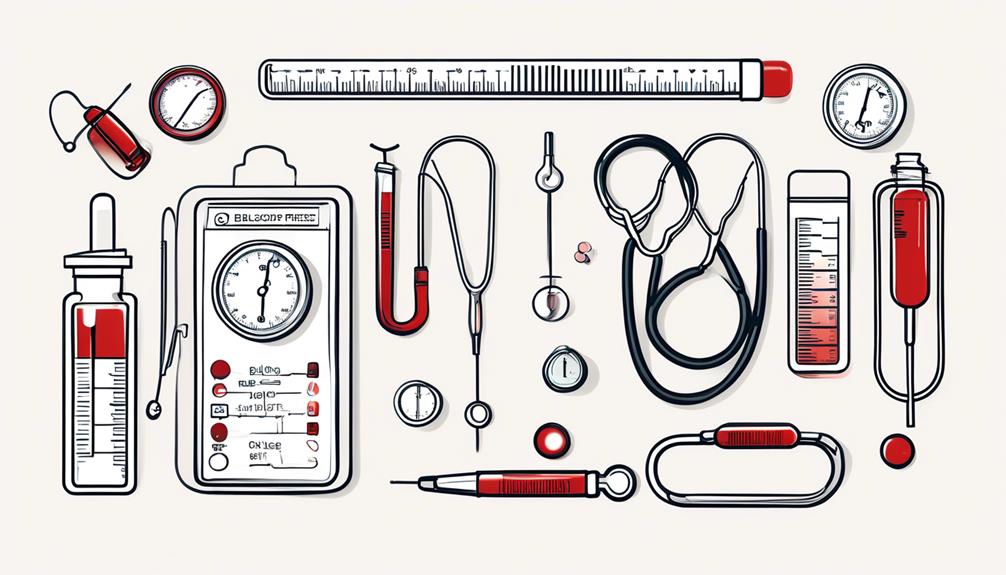Fortify Your Bones: The Ultimate Guide to Calcium Supplementation
Are you aware of the crucial role that calcium plays in maintaining your bone health and overall well-being?
You might be surprised to discover the various factors that can impact your body’s ability to absorb and utilize calcium effectively.
Understanding the nuances of calcium supplementation could be the key to optimizing your bone strength and preventing potential health issues in the future.
So, how can you ensure that you’re making the most informed choices when it comes to fortifying your bones with calcium?
Key Takeaways
- Adequate calcium intake is crucial for bone development and preventing conditions like osteoporosis.
- Good dietary sources of calcium include dairy products, dark green leafy vegetables, and fish with edible soft bones.
- Vitamin D is essential for effective calcium absorption, and sources include sun exposure and fortified foods.
- Calcium supplements can be taken in different forms like calcium carbonate and calcium citrate, but consulting with a healthcare professional is necessary to determine the need for supplementation.
Importance of Calcium in Bone Health
Understanding the vital role that calcium plays in maintaining strong and healthy bones is crucial for overall wellness and longevity.
Calcium is pivotal for bone development and growth, as well as for the proper functioning of the heart, muscles, and nerves. Insufficient calcium intake can have a profound impact on overall health, leading to problems such as weak bones, low bone mass, and stunted growth in children.
Adequate calcium intake is essential for preventing and treating osteoporosis, a condition characterized by fragile bones that are more prone to fractures. Good dietary sources of calcium include dairy products, dark green leafy vegetables, and calcium-fortified foods and beverages. In some cases, calcium supplements may be necessary to meet daily requirements.
It’s important to note that lifestyle factors can also influence bone strength. A high-salt diet, excessive alcohol intake, low levels of physical activity, and inadequate levels of vitamin D can all contribute to weakened bones.
Therefore, ensuring a balanced diet rich in calcium, along with maintaining a healthy lifestyle, is crucial for promoting optimal bone health and overall well-being.
Dietary Sources and Absorption
To maintain strong and healthy bones, it is essential to be mindful of dietary sources of calcium and understand the factors that influence its absorption in the body. Consuming calcium-rich foods such as dairy products (cheese, milk, yogurt), dark green leafy vegetables (broccoli, kale), and fish with edible soft bones (sardines, canned salmon) is crucial.
Additionally, calcium-fortified foods and beverages, including soy products, cereal, fruit juices, and milk substitutes, serve as excellent sources of calcium. Vitamin D is essential for effective calcium absorption, which can be obtained from fortified foods, sun exposure, and natural sources like canned salmon with bones and egg yolks.
It’s important to note that consulting with a healthcare professional is necessary to determine if calcium supplements are needed, especially for individuals with specific dietary limitations or conditions that hinder calcium absorption, such as lactose intolerance or inflammatory bowel disease.
Obtaining calcium from foods rather than supplements is recommended to prevent potential adverse effects associated with excessive supplementation.
| Calcium-Rich Recipes | Calcium and Heart Health | Importance of Vitamin D |
|---|---|---|
| Broccoli and Cheese Casserole | The relationship between calcium intake and heart health | Vitamin D’s role in calcium absorption |
| Kale and Quinoa Salad | Effects of calcium on blood pressure | Sun exposure and natural sources of Vitamin D |
| Baked Salmon with Parmesan Crust | Calcium-rich smoothie recipes | Vitamin D-fortified foods |
Recommended Calcium Dose and Bone Strength
How much calcium do you need daily to maintain optimal bone strength and health? Here’s a guide to help you understand the recommended calcium doses:
- Men aged 19-70 should aim for 1,000 mg of calcium per day, while men aged 71 and older should aim for 1,200 mg per day.
- Women aged 19-50 should aim for 1,000 mg of calcium per day, and women aged 51 and older should aim for 1,200 mg per day.
Good dietary sources of calcium include:
- Dairy products
- Dark green leafy vegetables
- Fish with edible soft bones.
Calcium supplements may be necessary for individuals with specific dietary limitations or digestive diseases that hinder calcium absorption, but it’s important to consult with a doctor or dietitian before starting supplements.
When it comes to calcium supplementation, be cautious of potential risks. Excessive calcium intake can lead to health problems, so it’s crucial to follow recommended doses and seek professional advice.
Additionally, it’s important to ensure that children are also meeting their daily calcium intake through a balanced diet, as it’s crucial for their bone development and overall health.
Types of Calcium Supplements
When considering calcium supplementation, it is important to understand the different types of calcium supplements available and their respective characteristics.
Choosing the right calcium supplement involves considering various factors such as age, diet, and medical conditions. It’s also essential to compare calcium supplement forms to ensure optimal absorption and effectiveness. Below is a comparison of the common types of calcium supplements:
| Calcium Supplement | Best Taken With | Absorption |
|---|---|---|
| Calcium Carbonate | Food | Better absorption with food |
| Calcium Citrate | With or without food | Good absorption regardless of food |
| Calcium Phosphate | Not well studied | Potentially adequate absorption |
When selecting a calcium supplement, it’s crucial to consider its elemental calcium content and serving sizes. Calcium carbonate typically contains the highest percentage of elemental calcium, while calcium citrate is often recommended for individuals with low stomach acid or absorption issues.
Factors such as the timing of intake and potential interactions with other medications should also be taken into account. Consulting with a healthcare professional can provide personalized guidance tailored to individual needs and health conditions.
Managing Calcium Levels and Deficiency
Considering the vital role of calcium in maintaining overall health, it’s crucial to understand effective strategies for managing calcium levels and addressing potential deficiencies. Here are some practical tips to help you manage your calcium levels and prevent deficiency:
- Consume Calcium-Rich Foods: Incorporate dairy products, dark green leafy vegetables, and calcium-fortified foods and beverages into your diet to ensure an adequate intake of calcium. Try including calcium-rich recipes such as spinach and ricotta stuffed shells, Greek yogurt parfaits with fruit and granola, or tofu and vegetable stir-fry.
- Monitor Calcium Deficiency Symptoms: Be mindful of potential symptoms of calcium deficiency, which may include muscle cramps, brittle nails, and a higher risk of fractures. If you experience these symptoms, consult with a healthcare professional to determine the appropriate course of action.
- Ensure Sufficient Vitamin D Intake: Vitamin D is essential for calcium absorption. Spend time outdoors to allow your body to naturally produce vitamin D through sun exposure, and consider consuming vitamin D-rich foods or supplements if necessary.
- Balance Lifestyle Factors: Limiting salt intake, moderating alcohol consumption, and engaging in regular physical activity can all contribute to maintaining healthy bone strength and calcium levels.
Are Calcium Supplements Effective in Boosting Bone Density?
Looking for the ultimate bone density boost guide? Calcium supplements can effectively increase bone density, especially in those with low calcium intake. However, it’s best to combine them with other bone-healthy habits like exercise and a balanced diet for optimal results.
Frequently Asked Questions
Why Is Calcium No Longer Recommended?
The calcium controversy stems from new research findings that question the additional health benefits of calcium supplementation. Alternative recommendations now focus on obtaining calcium from food sources to avoid potential risks associated with excess supplements.
How Can I Get 1200 Mg of Calcium a Day From Food?
To get 1200 mg of calcium daily from food, focus on plant-based sources like leafy greens, tofu, and almonds. Try calcium-rich recipes such as spinach and kale salad with almonds or a tofu stir-fry with bok choy.
What Is the Best Form of Calcium to Take for Osteoporosis?
You should consider calcium carbonate for osteoporosis as it has the highest concentration of elemental calcium. If you have low stomach acid, calcium citrate might be better for absorption. Always consult a healthcare professional for personalized advice.
How to Get 1,000 Mg Calcium per Day?
To get 1,000 mg of calcium per day, focus on consuming calcium-rich snacks like yogurt or cheese. Consider supplement absorption by pairing calcium intake with vitamin D sources and eating dark leafy greens.
Conclusion
In conclusion, prioritizing calcium supplementation is essential for maintaining strong bones and overall health. By understanding the importance of calcium, choosing the right dietary sources, and considering supplementation when necessary, you can fortify your bones and support your body’s vital functions.
Remember to consult with a healthcare professional to determine the best approach for meeting your calcium needs. With the right knowledge and guidance, you can take proactive steps to support your bone health and overall well-being.







